
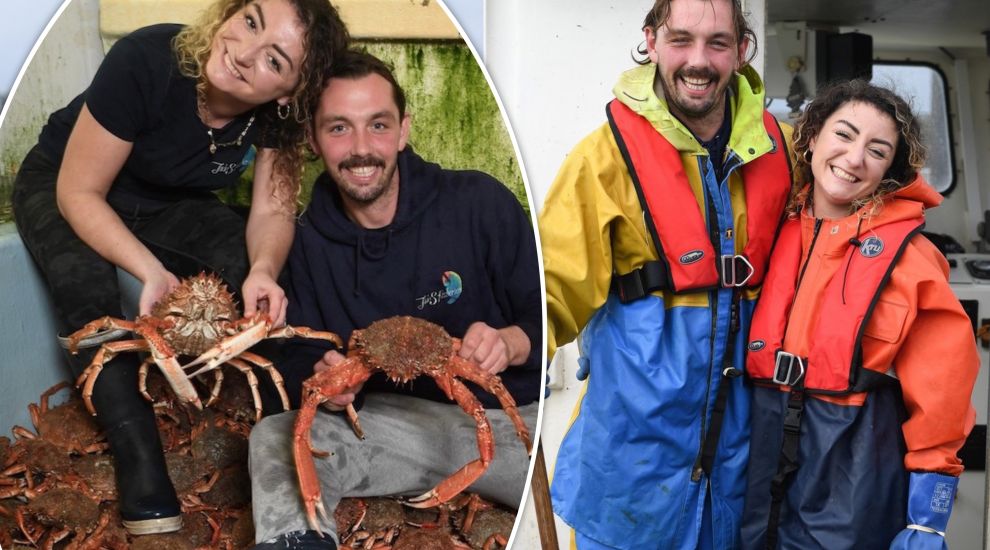

Fishing is a tough and dangerous way to make a living, but that has not deterred one young local couple from living their dream.
Leyton Hunnisett and Gabby Mason, of Jade-S Fisheries, are not just business partners - they have been in a relationship since romance blossomed on a night out in a popular St. Helier watering hole.
Now they are building a business together in a profession which is known to be one of the hardest – yet it is also one which is interwoven throughout the long history of the island, and a vital part of its ongoing identity.
It was one of the worst hit by covid; but both Leyton and Gabby argue that the support it received then needs to continue, if it is to survive.
Express went to meet them...
For Leyton Hunnisett and Gabby Mason, their lives “pretty much revolve around fishing, so much so that even low-water fishing together is considered a date as it’s something a bit different from our everyday work!”
At first, Gabby combined a day job with helping Leyton in her spare time, but late last year she gave up her employment to work alongside him full-time, seven days a week.
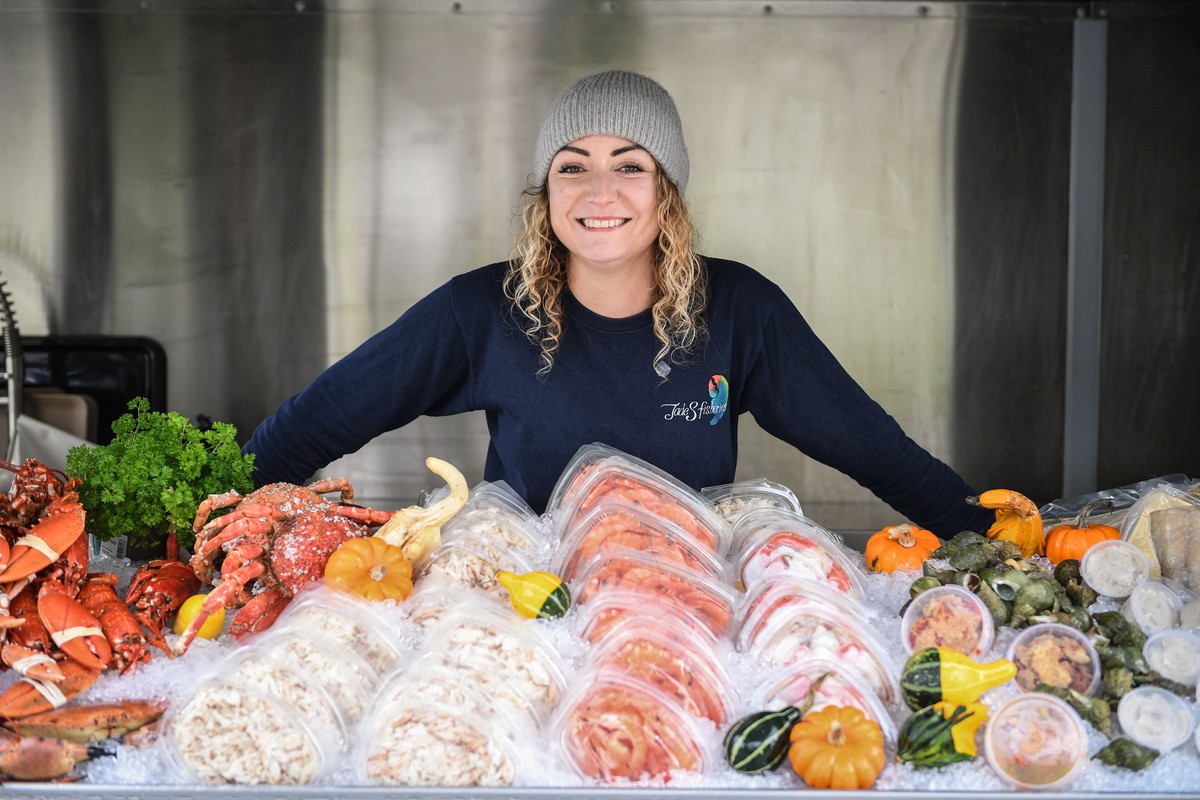
Pictured: Gabby Mason.
He said: “We’ll even go boating in the summer as we just can’t get enough of the water. That said, however, we do try make a point of enjoying our other hobbies like music and board sports.
“We just don’t see why you would want to make memories without the one you love by your side, as really that is the person who you want to experience everything with and grow with.
“Life is about growing together and following the same adventure, and that’s what this is – an adventure.”
Both Gabby (29) and Leyton (31) were born and educated in the island - he is an Old Victorian and she attended Beaulieu.
He left school at 16 to work on boats and after gaining his Ocean Masters’ licence in Australia, pursued a career skippering super yachts.
But the draw of home waters brought him back to the Island, where he eventually bought the Jade-S, ironically a vessel on which he had trained and previously crewed.
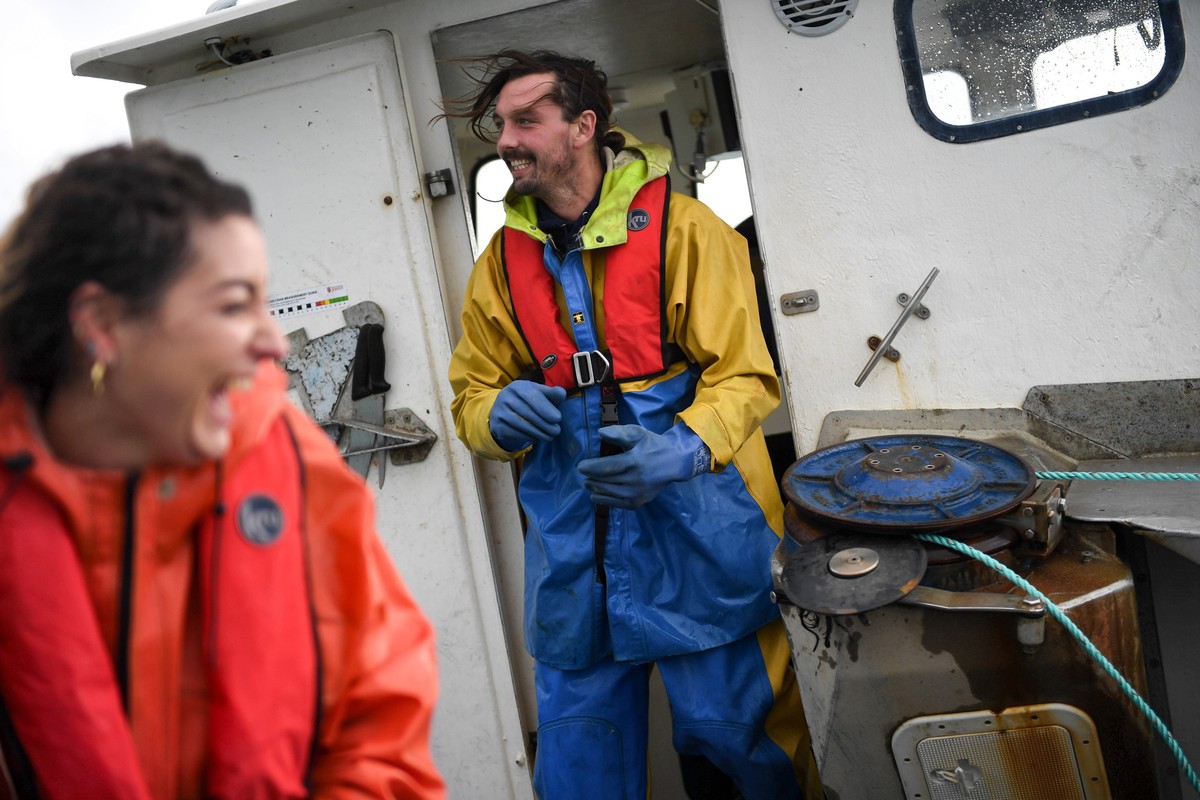
Pictured: “We don’t have particularly defined roles as we both need to be able to do a bit of everything in the business, and we have the attitude that if it needs doing, you just do it.”
Meanwhile, Gabby also left the island to study geology at University College London, going on to obtain a Masters degree in science.
Like Leyton, she was drawn home after working in the African mining industry and joined the civil service.
Then they met, started dating and the rest is history.
She said: “We don’t have particularly defined roles as we both need to be able to do a bit of everything in the business, and we have the attitude that if it needs doing, you just do it.”
Life and work were going well until early March 2020 when Jersey’s fishing industry was shut down overnight as a new, potentially fatal strain of corona virus started sweeping the planet.
As it took hold in Europe, the export market on which local fishermen relied shut down.
Gabby said: “This happened even before covid had hit the island so fishing really was one of the first economic casualties.
“At this time, the head of Brexit was showing and we knew more problems were on the horizon. We made a decision that day that we would not sit and wait things out but that we’d change the way we did business and sell Leyton’s catch direct to the local consumer.
“It was at this point we knew we could also help other local fishermen in the same boat – pardon the pun – so we began buying their catches to sell as well.
“We began with deliveries around the Island but quickly realised it wasn’t that simple and we kept getting lost, even with directions.
“We then reached out to the parishes to see if any would let us set up a fish stall outside, to which we had some positive responses.”
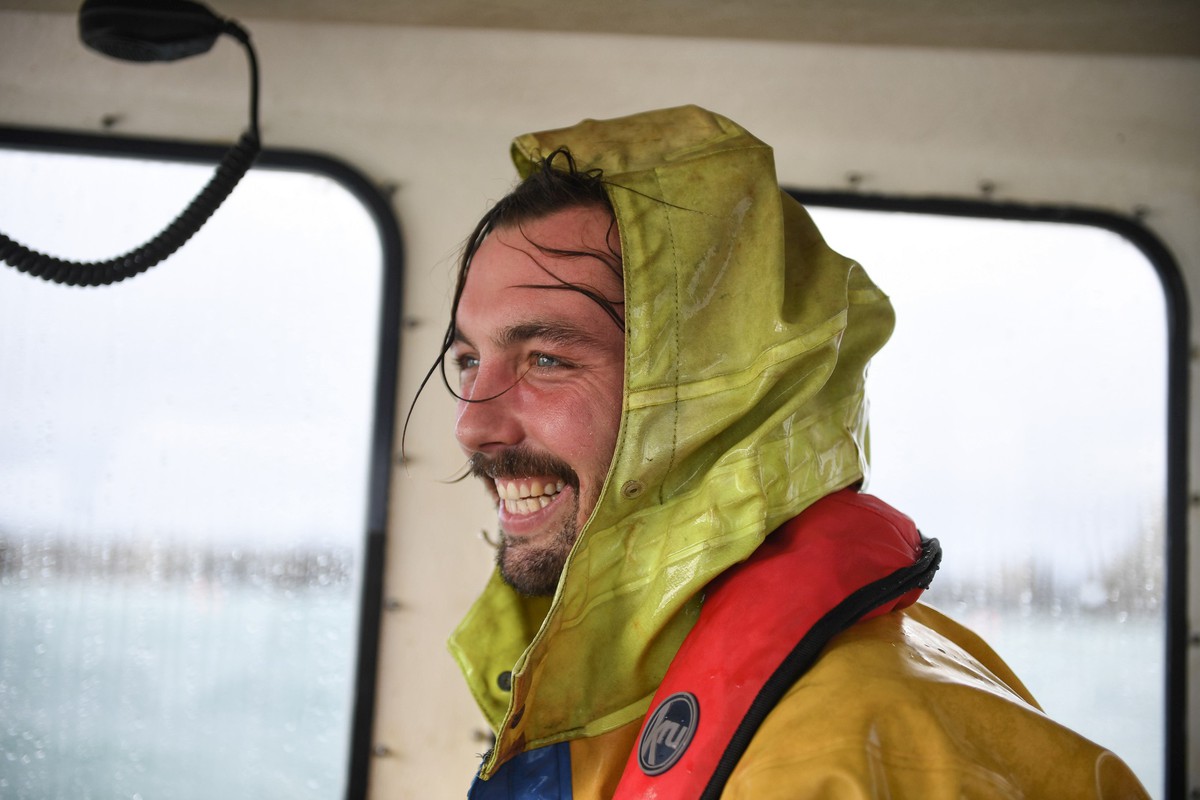
Pictured: Leyton left school at 16 to work on boats and after gaining his Ocean Masters’ licence in Australia, pursued a career skippering super yachts.
Having found pitches to trade from, they embarked on a business expansion plan at a time when no one knew what the future might hold. It was a risk that fortunately paid off.
The first step was to invest in a refrigerated trailer. Then they took on a commercial fishing unit on Victoria Pier, complete with viviers, fridges and processing rooms, to which they added an ice machine and a large blast freezer.
Gabby explained: “We continually strive to expand and to have the correct infrastructure around us to allow us to continue in business and to be able to offer even more. Recently, we purchased a smoker and now can offer locally caught and smoked fish.”
Jade-S Fisheries stills sells direct to the public from a vintage seafood van at Longbeach, Grouville, on a Friday, in St. Aubin on Saturdays and at St. Ouen’s Community Centre on Sundays. The business also supplies local restaurants and cafés.
Working days can be long – up to 14 hours and more at Christmas – and being together pretty much 24/7 can stretch the bon ami of even this loved-up couple.
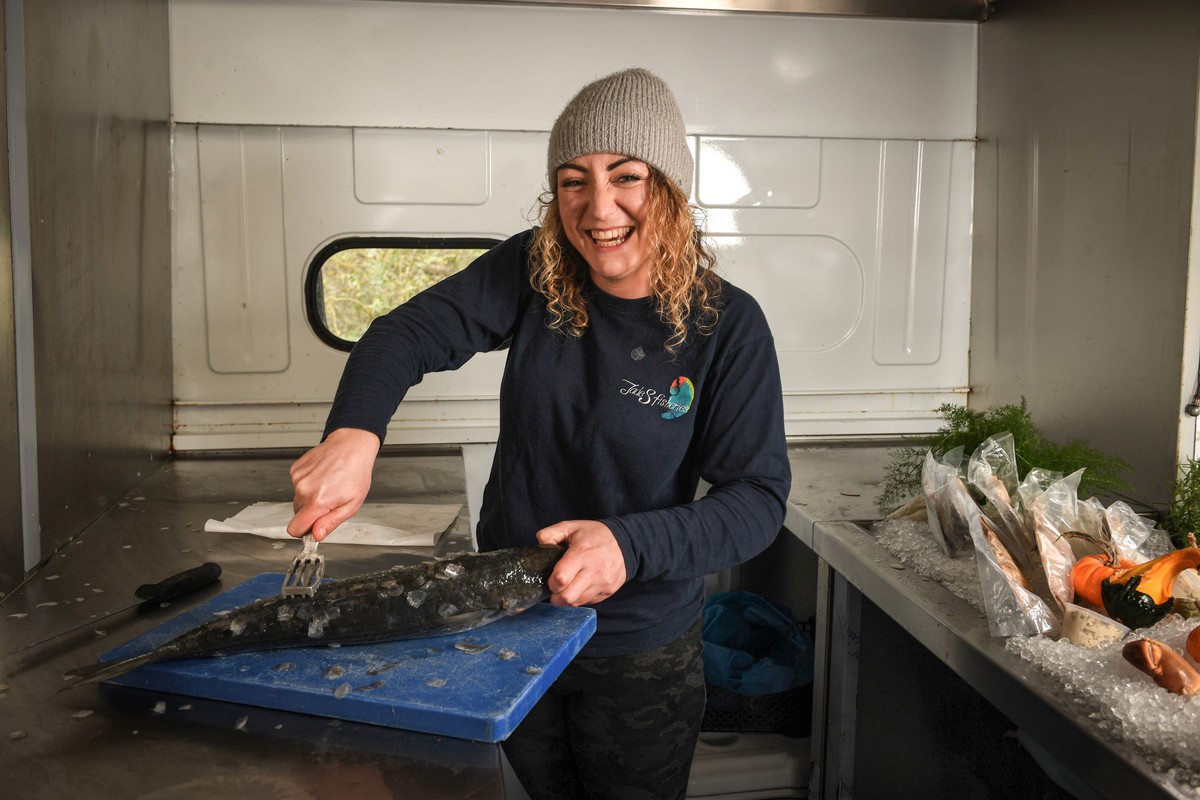
Pictured: Gabby left the Island to study geology at University College London, going on to obtain a Masters degree in science and was drawn home after working in the African mining industry.
Leyton said: “It is true we are pretty much glued to each other’s hips, but we wouldn’t have it any other way.
“When you come so used to that person being around, it feels strange to be apart.
“Even when we aren’t physically together, chances are we will have to call each other multiple times to discuss something to do with the business.
“Of course, we have our moments but that usually blows over pretty quickly – about the time it takes to make and have a cup of tea.
“At the end of the day, business has to keep on moving and deep down we both know how to sort through any disagreement.”
Fishing is perceived to be a ‘man’s world’ though women have played vital roles in fishing communities worldwide for centuries.
Gabby is insistent this is the first job in which she has not been exposed to sexism or misogyny.
She said: “If anything, the guys just egg me on and tell me I can do it too. At a harbour, respect is earned, not just given. Whether you’re a girl or boy, you have to be willing to work and put in the graft in.
“Not everyone is built for the work and lifestyle, male or female. It does take some considerable physical and mental strength that not everyone has but that is the beauty of humanity; we are all different.
“For sure, in comparison to most other sectors, there are fewer women represented but we are there.
“And probably more than you’d expect, in a variety of roles from large-scale fish merchants, to crab pickers and accountants to fishing on the boats. Women are in the industry too. And, to be honest, to us it’s pretty normal.”
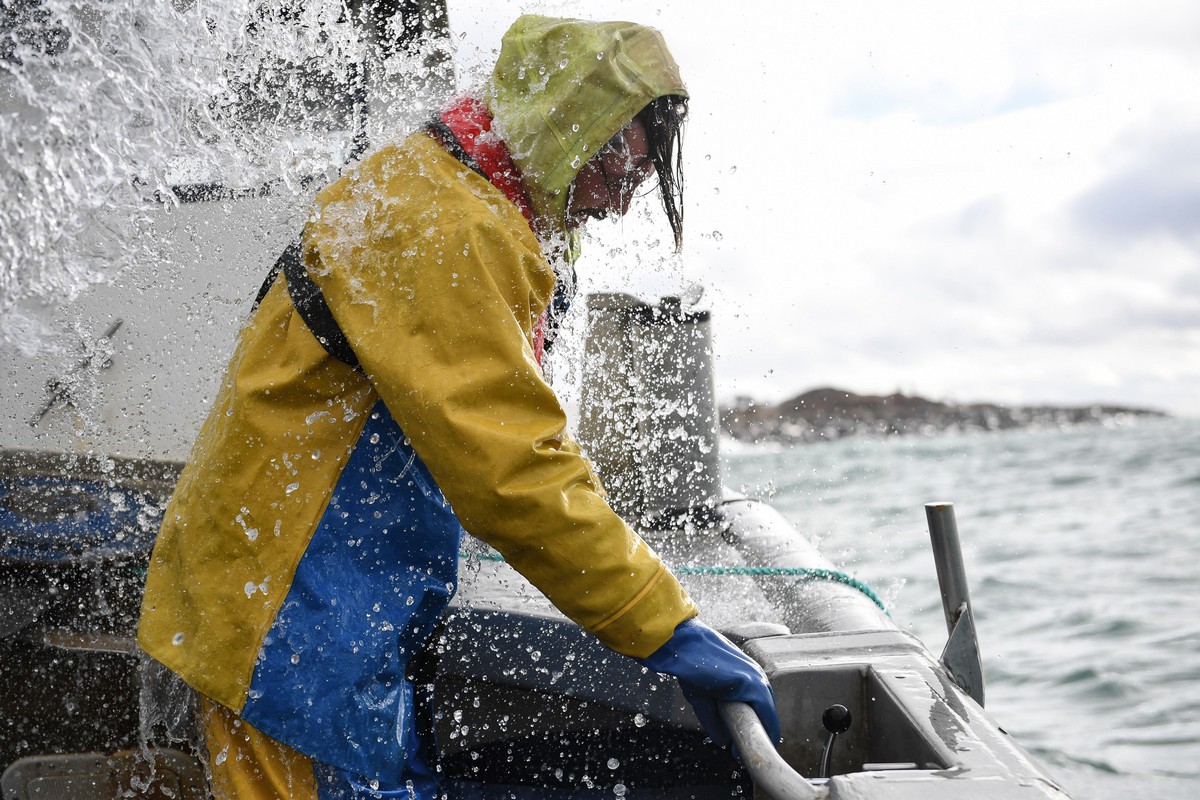
Pictured: On a cold winter’s morning, when a biting east wind is blowing icy spray across the deck, do they ever yearn for an easier nine-to-five job, where they are not exposed to the mercurial forces of the sea?
On a cold winter’s morning, when a biting east wind is blowing icy spray across the deck, do they ever yearn for an easier nine-to-five job, where they are not exposed to the mercurial forces of the sea?
Leyton said: “It is really not for me, as tuning into nature – the good and the bad – is probably the best job there ever is. I live in an island and look out to sea. But also, when I was a child, my mum had to take me to Gorey at low tide to let me run so that probably explains it best.
“Sure, the consistent pay packet might be nice and being able to go to bed without thinking about the weather and where I left my pots would reduce the stress levels, but I still would not change it.”
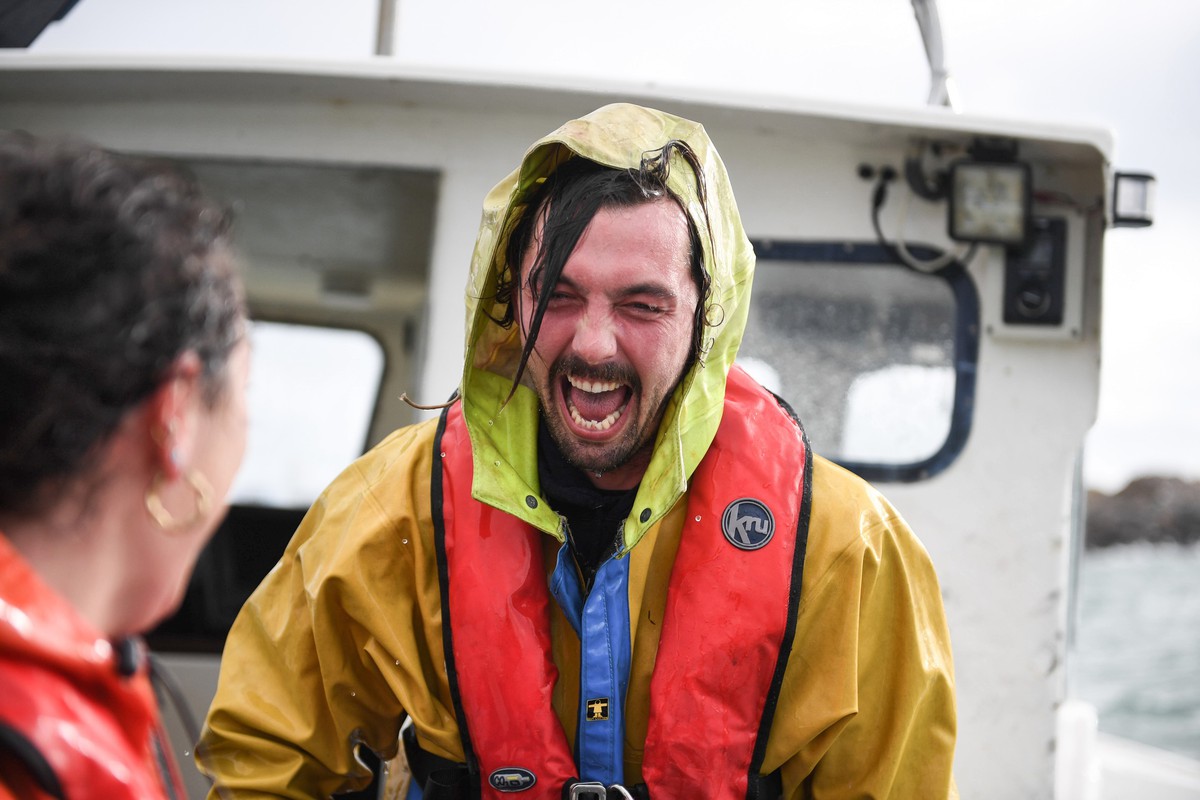
Pictured: As far as Leyton is concerned, fishing is primeval and intrinsic to his DNA.
Gabby says she has no regrets about joining the business, as she feels at home in a fishing community.
She said: “Fishing is something within a person. I believe, at least from my experience, that fishermen were born to do what they do.
“They crave that time at sea, it is somehow part of who they are. I couldn’t imagine a world where Leyton was not at sea. It is hard work but it’s a real and an honest way to earn a living.
“But fishing is not just a job, it is a community, it is a lifestyle and a ‘way of being’.”
As far as Leyton is concerned, fishing is primeval and intrinsic to his DNA.
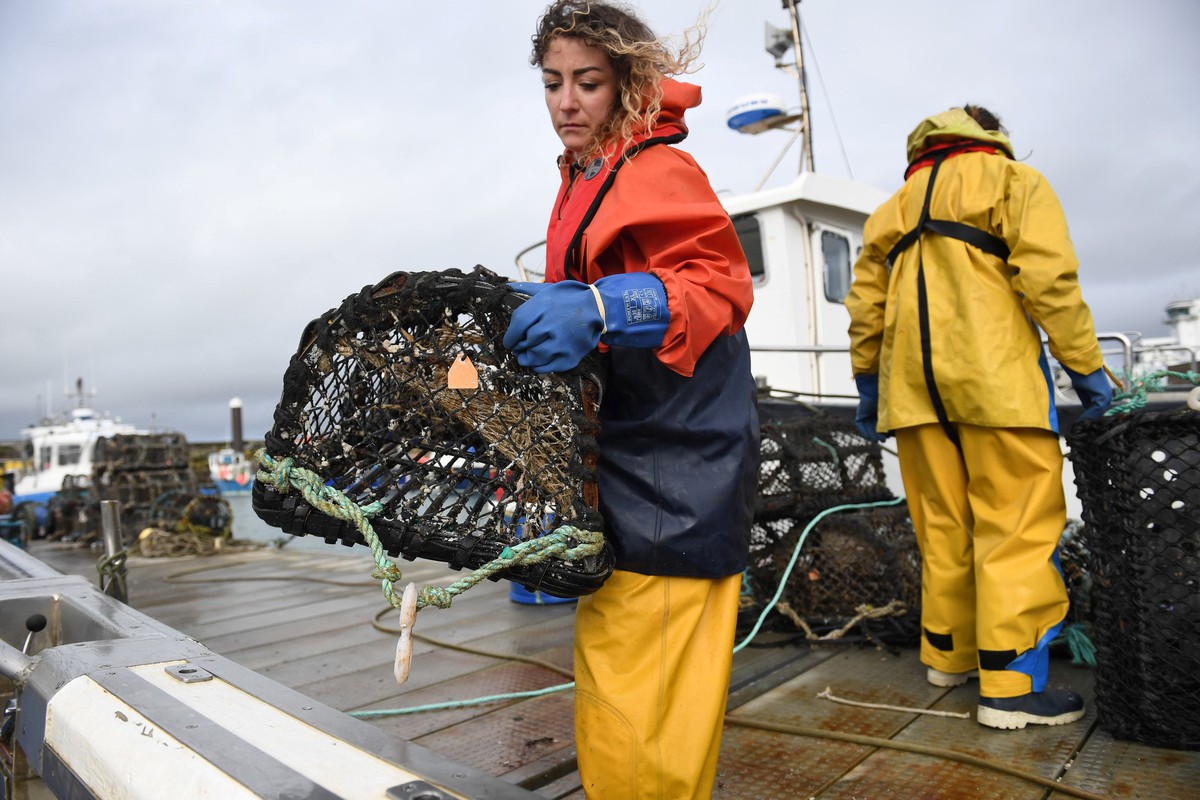
Pictured: "Women are in the industry too. And, to be honest, to us it’s pretty normal.”
He said: “For me, it is also the thrill of the hunt and, as Gabby says, there’s something innate about it. My family have traced my ancestors back to 1806 when they were fish merchants so there’s something in the bloodline.
“The harbour is also an intoxicating place to work. No matter the time of the day, there’s someone there to bring a smile.
“If you look particularly grumpy that day, the harbour saying is ‘who insulted your wellies?’ and that’s sure to change things around. Fishermen are natural jokers and pranksters.”
Leyton and Gabby are in fishing for the long-term, but their optimism does not stretch to the industry as a whole – at least not unless financial support from the government is forthcoming.
Islanders got behind the industry during lockdown, helping fishermen to survive as they sold direct to the public.
And that support, the couple says, must continue, as it is fundamental to the survival of this ancient profession.
Gabby said: “We need to change how we all eat and how we see food, and eat more healthily and more sustainably by eating locally caught seafood. Imagine a piece of mullet instead of salmon, for example.
“Be sure to ask wherever you are what’s locally caught and what choice would help the local fishermen.
“And put pressure on your favourite restaurants, hotels and cafés to buy truly local seafood, rather than supporting the marine economies of other countries.”
While they are determined to make a success of the business, they are realistic about the issues faced by commercial fishermen.
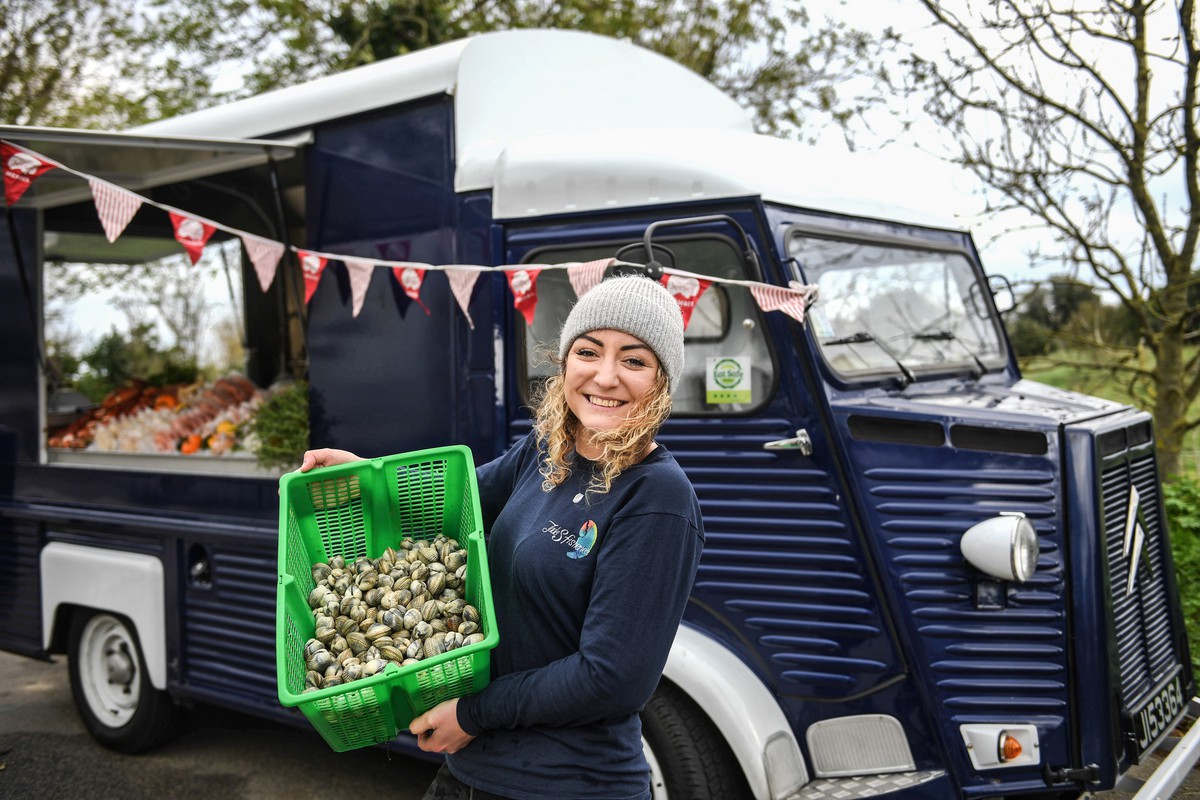
Pictured: Be sure to ask wherever you are what’s locally caught and what choice would help the local fishermen.
Leyton said: “The industry is declining at an exponential rate with almost no newcomers and even some of the youngest in the fleet are being forced to quit.
“The sheer number of those who have left the industry in the last few years would bring tears to the eyes of even the hardest seaman. Finding those to replace lost crew, skippers and even fishmongers seems near impossible in today’s world. We’ve more than halved, yet it’s something we as an industry don’t speak about publicly.
“The cost of living and the lack of political and economic support has disheartened the industry and has meant many have been forced to leave as ends could not be met.
“The increased prices for boat parts, fuel and bait have just exacerbated the continuing problems being caused by Brexit, with landings still severely affected into France.”
The recent closure of Woodside Farms – which produced 80% of fresh locally grown crops in a market long dominated by imports – has further loosened the government’s tenuous grip on food security.
This places greater pressure on government to help keep the fishing fleet at sea with grants and changing fishing quotas.
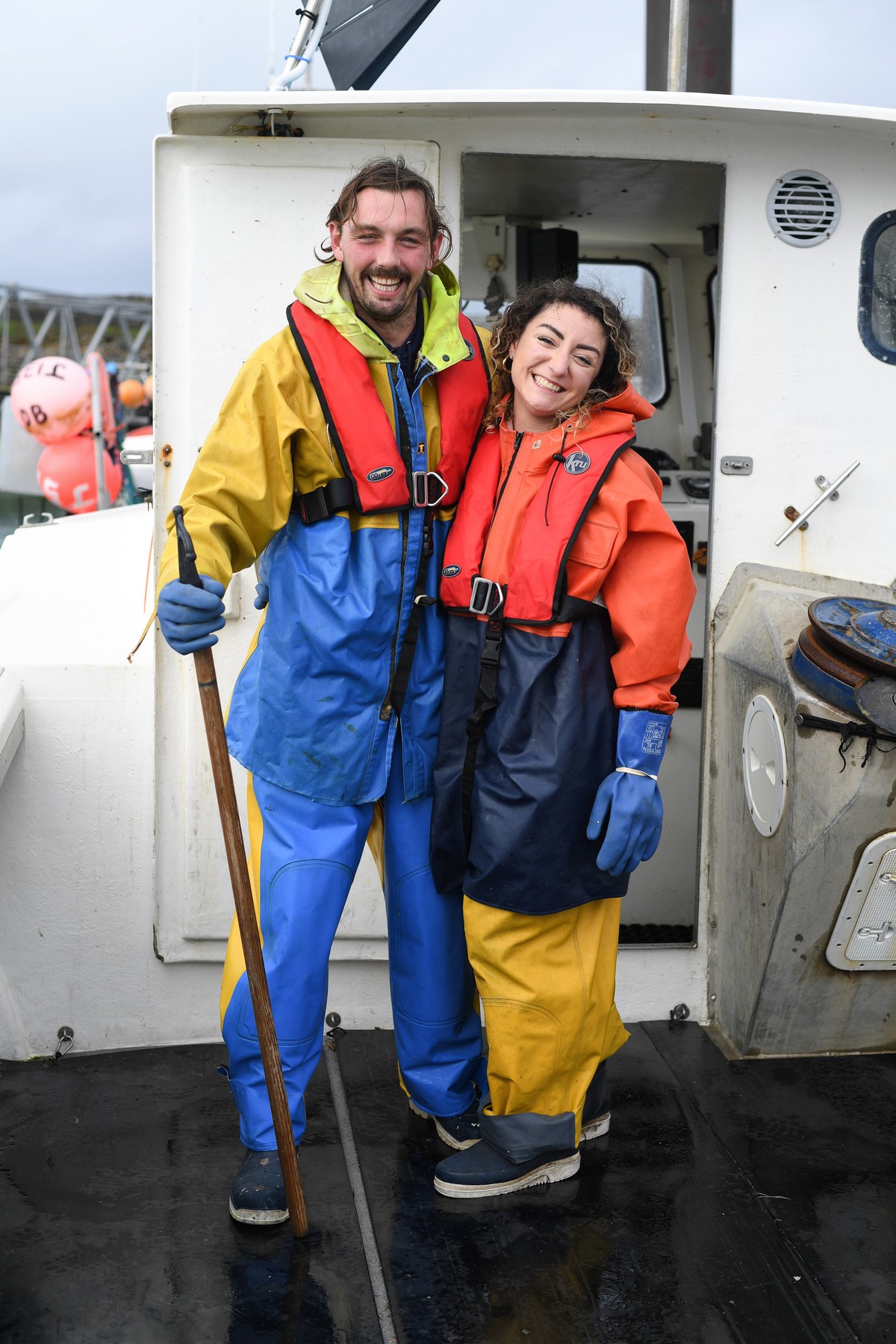
Pictured: “As an island, fishermen are fundamental to our own food security, and a local fishing fleet is one sure way to ensure that Islanders can be fed should the worst happen."
Gabby said: “As an island, fishermen are fundamental to our own food security, and a local fishing fleet is one sure way to ensure that Islanders can be fed should the worst happen.
“With the world events that have unfolded over the last two years-plus, perhaps this is more important than before.
“Seafood also plays a big role in tourism, whether it’s on a plate in a restaurant or the pure joy tourists find in marvelling at the fishing boats bobbing in the harbours.
“Tourism and fishing are linked, and excellent seafood just adds to the island's appeal. How can you have a harbour without a fishing fleet?”
This article first appeared in the Christmas and New Year special edition of Connect Magazine, which you can read in full below...
Comments
Comments on this story express the views of the commentator only, not Bailiwick Publishing. We are unable to guarantee the accuracy of any of those comments.